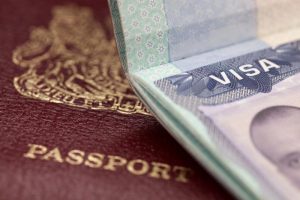How to setup a business in Thailand
Many foreigners who plan to reside in Thailand long term plan to set up a Thai company and run their own business here.
There are many reasons for wanting to do this but one of the most common reasons is security here in Thailand and not relying on your employer for your visa and needing to leave the country if your employment was terminated.
Setting up a Thai company is quite straightforward when you understand the process so we will aim to make it as clear as possible:
Registering your Thai company
First you need to choose a company name and check if it is available, this can be done online and it is usually a good idea to think of three possible names in case your first choice is already taken.
Only 49% of a Thai company can be owned by a foreigner, the other 51% of the shares must belong to Thai Nationals. If you have Thai business partners, they would be the obvious choice to do this for you. If not, you can ask your Thai girlfriend/boyfriend or husband/wife to help you.
Be very careful who you allow to own shares in your company though, it is often recommended to have more than one Thai shareholder so that your 49% is greater than their individual shares and some people even choose to have Thai shareholders who are not connected to each other.
You also need to give a very clear description of the business objective – write exactly what the business does, try to include everything in this description and don’t leave anything out.
For example, a Real Estate company could write something like this:
“Advertising and marketing houses for sale and for rent. Liasing with vendors and prospective customers regarding house sales and rental contracts and negotiating with the land registry office/lawyers regarding land transfer transactions.”
How much registered capital does a Thai company need?
The amount of registered capital required by a Thai company depends on the type of business, it can be anywhere from 100 baht to 1 trillion baht!
If a Thai company is going to employ foreign staff then the minimum registered capital required is 2 million Thai baht per foreign employee. So, if you just want one work permit for yourself then you just need registered capital of 2 million Thai baht.
Finding an office or a shop
It will be much easier for you if you can find a place which has previously been used as business premises as there are a lot of documents required from the landlord which some landlords are unwilling/unable to give you.
If you rent a place and later find out that you cannot get all of the documents which are required then you may still have to pay rent for the remainder of the contract as well as finding new premises.
If the place you are renting hasn’t previously been used as a business place then make sure you make it clear to the rentor that you will be using the premises as your place of business and check that they will be able to provide the documents. The documents required usually incl
Once you have a business address, registering a Thai company can be done within a week, don’t believe anyone who tells you different!
Hiring Thai Employees
Thai law states that if a company wants to employ a foreign worker then the company must have a ratio of four Thai employees to one foreigner.
This is to ensure that Thai workers are able to benefit by receiving additional knowledge from working with foreign experts, increase employment levels for Thai people within Thailand and promote the growth of technology and new ideas within Thailand.
In order to prove that your company has four Thai employees then you need to register with the department of Social Security and pay Social Security payments for your Thai staff every month.
The process of registering for Social Security can be complicated so unless you are competent in writing Thai language it is best not to go through this process alone as the officers will not help you to complete the paperwork and it needs to be done in Thai.
You will need to provide the names and addresses of your Thai employees along with a copy of their Thai ID card as well as your company documents and a map showing where your office is located. You will also need to take photos of your office.
Sometimes the Social Security insurance officers will pay a visit to your office to make sure that you are running a real business and not just setting up a company to get a Non B visa.
If they come to check then they will just ask your staff some questions like: What is your name, What is your job here, what is the name of the company (this is to check that they really are your staff and not just someone pretending to look like staff).
Once you have your Social Security number and have paid your first month’s Social Security payment for your staff you can then apply for your work permit.
If you are starting a business such as restaurant then you would need to obtain a business licence for selling food, selling alcohol and possibly having live entertainment at your venue.
If you are a tour company then you will need to have a TAT license etc etc
Applying for a visa and work permit
Once your company is fully setup then you need to apply for a Non B visa and work permit to be able to work legally in Thailand.
To apply for a work permit you need to have the right type of visa which is one of the following:
Non Immigrant B Visa
Non Immigrant O Visa (Married to a Thai or supporting a Thai child)
If you don’t yet have either of these visas then you have 2 choices:
Get the visa changed in Thailand, this is for holders of a 30 day visa exempt stamp or a 60 day tourist visa. BUT you MUST have at least 20 days left on this visa /stamp. If you would like to change your visa type in the country you don’t need to apply for your work permit first.
The alternative is to travel to a neighbouring country and apply for a NON B visa at the Thai Embassy there. In order to do this, your company will need to apply for a work permit type 3 (WP3) first. Without the WP3, you won’t be able to get a NON B visa.
Once you have your NON B visa, then the next step is to get your work permit. You apply at your local labour office for the work permit and need to supply a full description of the work you will be doing and possibly also your qualifications to do the job.
The labour office staff may visit your office to check the working environment and see what you will be doing.
Once your work permit has been issued then you can apply to extend your NON B visa for a period of 12 months.
You keep renewing your visa extension and work permit every 12 months.
For new small / SME companies the Department of Employment they sometime only give foreigner 6 months but it’s not a problem you can always extend it when it expires.


How to keep your business running
Each month you will need to do proper accounting and record keeping. Basically you will need to know the basics of Thai accounting like VAT if your company is VAT registered, Withholding tax, sales receipts, what can be expenses and what can’t be.
Every month you will need to pay Social security insurance for your staff deduct 5% from your staff wages and add another 5% to the fund. Don’t be late with these payments as you may need to pay a fine and if you are very late your staff’s benefit could even be stopped!
Setting up and running a business in Thailand is both challenging and exciting, AW Biz are here to help you meet those challenges and share in your excitement.
Find out how AW Biz can help you start your journey as a Thai business owner.







